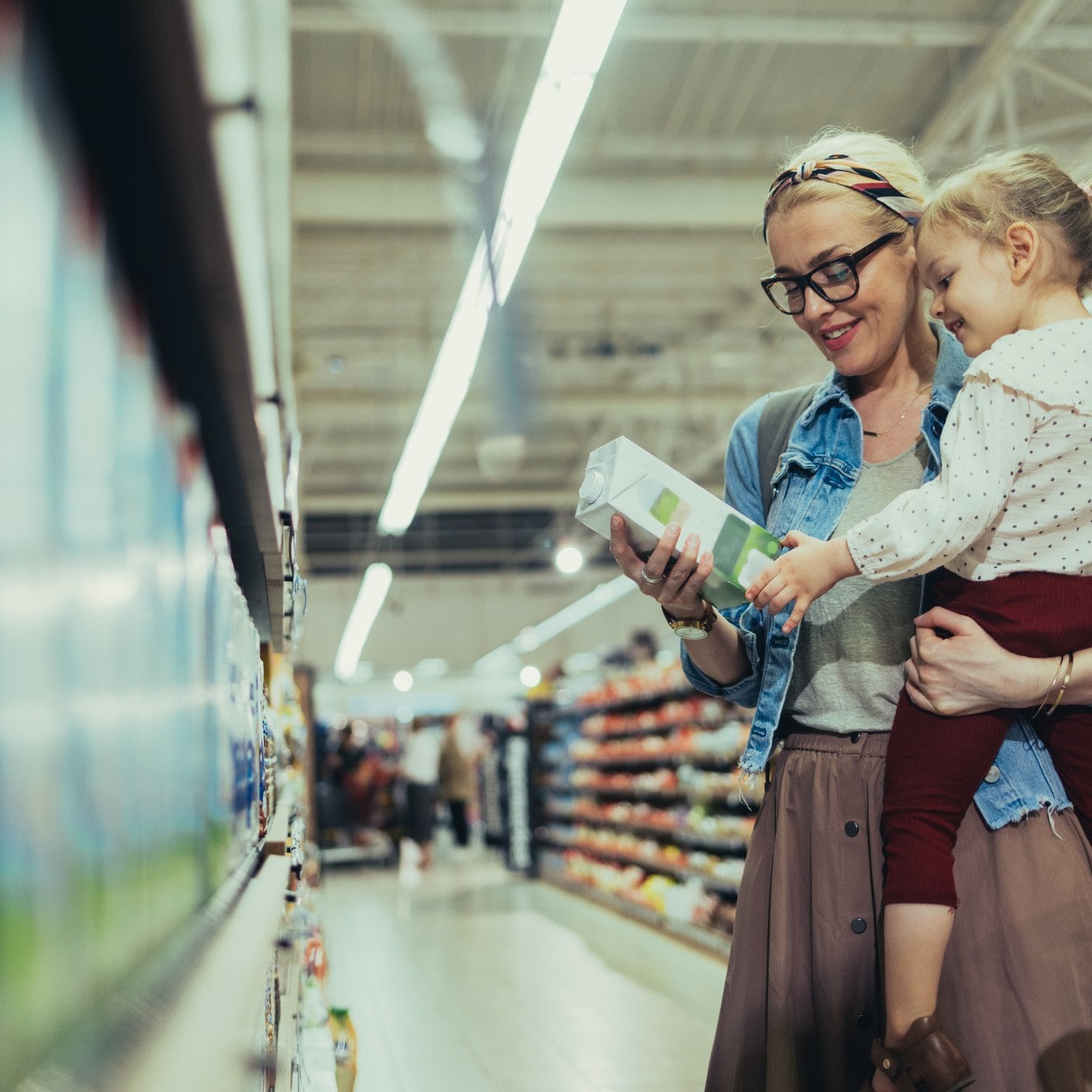The food supply chain plays a major role in climate change and environmental issues like deforestation.
The reality is that food systems account for up to 37% of global greenhouse gas emissions according to the Intergovernmental Panel on Climate Change (IPCC), whilst agriculture is the world’s leading driver of deforestation . What’s more, ‘food miles’, the distance items travel from production to consumption, are responsible for a fifth of all food-related carbon emissions.
By giving consumers better information about the environmental credentials of products, retailers can help them to make more sustainable choices during their food shop.
Increasing the use of eco-labeling can empower consumers to make more sustainable purchases. Research by the World Economic Forum shows that 65% of consumers want to make the right choices to live a healthier and more sustainable lifestyle , with a PwC study suggesting they are willing to pay a 9.7% ‘sustainability premium’ to do so . And with ethical consumerism valued at £141 billion in the UK in 2023 , there's a clear opportunity to provide the simple, recognizable messaging that consumers are actively seeking.
The European Parliament has also adopted proposals which will require companies to ensure the reliability and accuracy of their voluntary environmental claims. This presents a further opportunity for eco-labeling to improve consumer confidence in the sustainability of food products.
Eco-labeling for sustainable production and consumption
Eco-labels, which contain product-specific sustainability information, are voluntarily placed on products by brands to help consumers make informed purchasing decisions.
Research by the British Psychological Society has shown that eco-labeling on menus encourages people to eat more sustainably, with more people (84%) opting for the more sustainable choices in the eco-label study, compared with the control study (69%). Similarly, the application of Nutri-Score labels to products in French supermarkets apply the principles of nudge theory to encourage consumers to choose more nutritional products. The success of the Nutri-Score System has led to the initiative being recommended for use in other European Union countries, as well as by the European Commission and the World Health Organization.
Eco-labeling can achieve comparable results for raising consumer awareness of the carbon footprint of food products, and thus drive rapid improvements in sustainability throughout the food supply chain. At the same time, it can simplify the process of making eco-friendly choices for consumers.
Furthermore, sustainable products often carry a price premium which could discourage consumers if they are not aware of the product’s sustainability credentials. Again, this is where eco-labels have an important role to play in supporting consumers to make more sustainable choices.
Retailers are looking into how this works. In 2024, Tesco announced a trial into how eco-labeling affects online shopping habits. Working with Universities of Oxford, Cambridge, Warwick and Queen Mary University London, as well as stakeholders from local and national government, charities and the wider food sector, Tesco will grade products based on environmental impact to see how this influences purchasing decisions.
Why we need standardized eco-labels
With reported incidents of 'greenwashing' contributing to skepticism among consumers about eco-friendly claims, it's important that sustainability information presented to consumers is genuinely meaningful and truthful.
For instance, Oatly’s adverts comparing its plant-based products to dairy milk were banned by the Advertising Standards Authority for misleading claims about carbon emissions. This illustrates how producers and brands must ensure authenticity about sustainability claims to gain the trust of an increasingly environmentally conscious market.
Currently, there is a lack of agreed standards for eco-labeling of food. Despite this, some food brands and retailers are already adopting their own eco-labeling practices without the guidance of an industry standard. This means there is no consistent benchmark for the development of eco-labels, which presents an opportunity to address the potential for misinformation, consumer confusion and 'greenwashing'.
By providing consistency and transparency to eco-labeling through an industry standard, we can enhance consumer confidence in the sustainability claims of food brands. A new standard will also encourage businesses to ensure sustainable production systems and invest in innovative, carbon-neutral technologies to display the highest eco-label rating on their products.
For consumers, developing a standard for eco-labeling will give them an easy way to make evidence-based purchasing decisions. This will require mobilizing our network of business, academia and government throughout the standard development. Crucially, such a consensus-building approach will ensure labels can be clearly understood by consumers.
Driving sustainable change in food
At BSI, we have proven success engaging with industries, businesses and governments to create consensus-based standards that define what 'good' looks like. Our extensive research capabilities and track record demonstrate our impact in driving change in the food industry through collaborative work.
We’ve created standards that address the food industry’s shifting landscape and support initiatives which positively impact our planet and people. For example, our guide to responsible innovation (PAS 440) has been implemented by biotechnology startup MiAlgae. The company produces omega-3-rich algae using co-products from the whisky industry, thus addressing food waste and providing an omega-3 source that doesn’t rely on depleting fish stocks.
Our collaboration with the food industry has also led to fast-track standards. This includes the guide to protecting and defending food and drink from deliberate attack (PAS 96) and a new document on the criteria to define 100% plant-based foods (PAS 224).
By developing effective standards, BSI plays an essential role in helping businesses, organizations and government become more transparent through better monitoring and reporting as they journey towards net zero targets.
Find out more how our standards development services can support your sector here.

